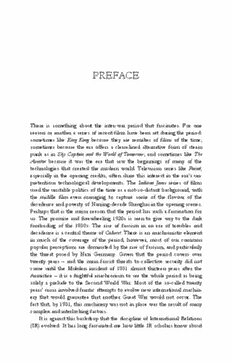Download International Relations and the Labour Party: Intellectuals and Policy Making from 1918–1945 PDF Free - Full Version
Download International Relations and the Labour Party: Intellectuals and Policy Making from 1918–1945 by M Ashworth in PDF format completely FREE. No registration required, no payment needed. Get instant access to this valuable resource on PDFdrive.to!
About International Relations and the Labour Party: Intellectuals and Policy Making from 1918–1945
From 1918 to 1945, the British Labour Party worked closely with some of the most prominent names in international relations (IR) scholarship. Through such structures as the 'Advisory Committee on International Questions', academic IR specialists were instrumental in the construction of Labour foreign policy, preparing a wealth of memoranda, reports and pamphlets for the Party. Here, Lucian Ashworth examines the crucial role played by IR theorists. He puts the international theories of five key writers - Leonard Woolf, H.N. Brailsford, Philip Noel Baker, Norman Angell and David Mitrany - into the context of both the development of Labour's international policy and the evolution of the international environment between the wars. He demonstrates the inadequacy of the current interpretation within IR of the inter-war period and argues the obsession with the anachronistic division between realism and idealism - terms that had different connotations before World War II - masks both the very different debates that were going on at the time, and the changing international landscape of the inter-war period itself.
Detailed Information
| Author: | M Ashworth |
|---|---|
| Publication Year: | 2007 |
| ISBN: | 9781845115586 |
| Pages: | 298 |
| Language: | English |
| File Size: | 5.151 |
| Format: | |
| Price: | FREE |
Safe & Secure Download - No registration required
Why Choose PDFdrive for Your Free International Relations and the Labour Party: Intellectuals and Policy Making from 1918–1945 Download?
- 100% Free: No hidden fees or subscriptions required for one book every day.
- No Registration: Immediate access is available without creating accounts for one book every day.
- Safe and Secure: Clean downloads without malware or viruses
- Multiple Formats: PDF, MOBI, Mpub,... optimized for all devices
- Educational Resource: Supporting knowledge sharing and learning
Frequently Asked Questions
Is it really free to download International Relations and the Labour Party: Intellectuals and Policy Making from 1918–1945 PDF?
Yes, on https://PDFdrive.to you can download International Relations and the Labour Party: Intellectuals and Policy Making from 1918–1945 by M Ashworth completely free. We don't require any payment, subscription, or registration to access this PDF file. For 3 books every day.
How can I read International Relations and the Labour Party: Intellectuals and Policy Making from 1918–1945 on my mobile device?
After downloading International Relations and the Labour Party: Intellectuals and Policy Making from 1918–1945 PDF, you can open it with any PDF reader app on your phone or tablet. We recommend using Adobe Acrobat Reader, Apple Books, or Google Play Books for the best reading experience.
Is this the full version of International Relations and the Labour Party: Intellectuals and Policy Making from 1918–1945?
Yes, this is the complete PDF version of International Relations and the Labour Party: Intellectuals and Policy Making from 1918–1945 by M Ashworth. You will be able to read the entire content as in the printed version without missing any pages.
Is it legal to download International Relations and the Labour Party: Intellectuals and Policy Making from 1918–1945 PDF for free?
https://PDFdrive.to provides links to free educational resources available online. We do not store any files on our servers. Please be aware of copyright laws in your country before downloading.
The materials shared are intended for research, educational, and personal use in accordance with fair use principles.

